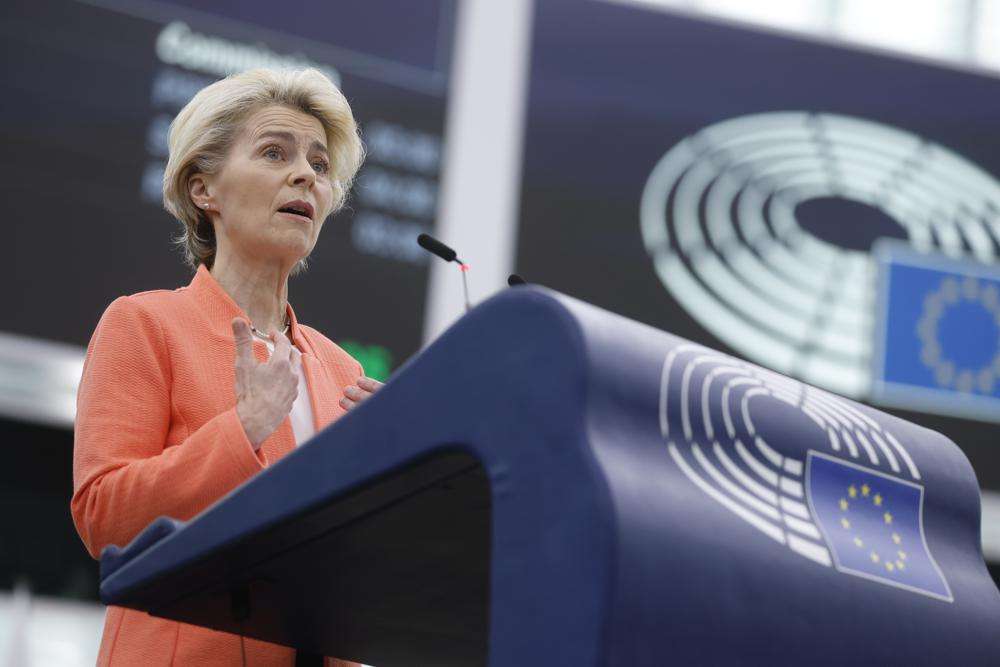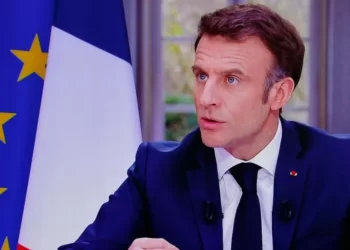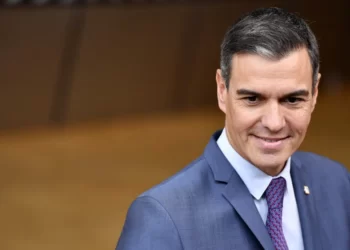EU Ambassadors have agreed on a 14th package of sanctions targeting Russia.
This new package reflects the EU’s continued effort to tighten sanctions against Russia in reaction to its aggression against Ukraine.
Belgium, which holds the rotating EU presidency, described the sanctions as “powerful and substantial.”
“This package provides new targeted measures and maximises the impact of existing sanctions by closing loopholes,” it posted on X.
For the first time, the newly agreed on sanctions target Russia’s lucrative liquefied natural gas (LNG) sector.
The measures, which do not include a prohibition on the purchase of Russian LNG by EU countries, ban the re-export of Russian gas to third countries via European waters.
European ports matter for Russia since the continent offers a key route for LNG exports from frozen Arctic ports to Asian markets in winter months.
The sanctions also target three upcoming Russian LNG projects aiming to cut off potential future revenue streams that could support Russia’s military actions against Ukraine.
Additional measures in the package aim to prevent sanction circumvention, addressing loopholes that were left open in previous packages.
This includes measures targeting the Kremlin’s “shadow fleet”—small, aging tankers used to sidestep the G7’s price cap on seaborne oil, which Russia has been selling above the cap price.
The EU is also hitting Moscow’s SPFS bank messaging system, used by Russia to try to ease the effects of being cut off by the West from the global SWIFT financial transfer system.
The decision follows protracted negotiations among EU ambassadors and multiple delays due to concerns from member states.
Countries debated the new measures for over a month and ultimately watered down one of the Commission’s proposals, aimed at preventing even more circumvention, at Germany’s prompting.
The dropped measure would have forced subsidiaries of EU companies in third countries to contractually prohibit the re-exports of their goods to Russia.
The EU is keen to stop the flow of dual-use technology such as washing machine chips that could be used by Russia for military purposes.
An EU diplomat said that Germany had asked for an impact assessment, and the measure could be included at a later date
In a post on X, European Commission Chief, Ursula Von der Leyen welcomed the agreement on the 14th sanctions package against Russia.

“This hard-hitting package will further deny Russia access to key technologies,” she noted.
She added that it will “strip Russia of further energy revenues and tackle Putin’s shadow fleet and shadow banking network abroad.”
EU diplomats aid several more Chinese firms accused of aiding Russia’s military were also being added to a blacklist preventing companies in the European bloc from trading with them.
Restrictions were also being placed on political parties, think tanks and media providers accepting money from Russia, to try to curb alleged meddling by Moscow.
Overall, 47 new entities and 69 individuals were added to the EU sanctions list, bringing the total to 2,200.
The package is set to be formally adopted when EU foreign ministers meet on Monday, June 24, 2024.
Ban Perceived To Have Little Effect
Meanwhile, gas market experts claim that the ban will have little effect since Europe will still buy Russian gas, and trans-shipments via EU ports to Asia represent only about 10 percent of total Russian LNG exports.
In 2023, the EU spent approximately €8.3 billion on 20 billion cubic meters of Russian LNG, which accounted for 5% of its total gas consumption.
This is from data by the Centre for Research on Energy and Clean Air (CREA).
Notably, about 22% of these LNG supplies were trans-shipped globally, with significant handling by maritime industries in G7 countries, which processed 93% of Russia’s LNG exports valued at €15.5 billion.
READ ALSO: Fidelity Bank Collaborates with HBS for FIELD Global Immersion Project























